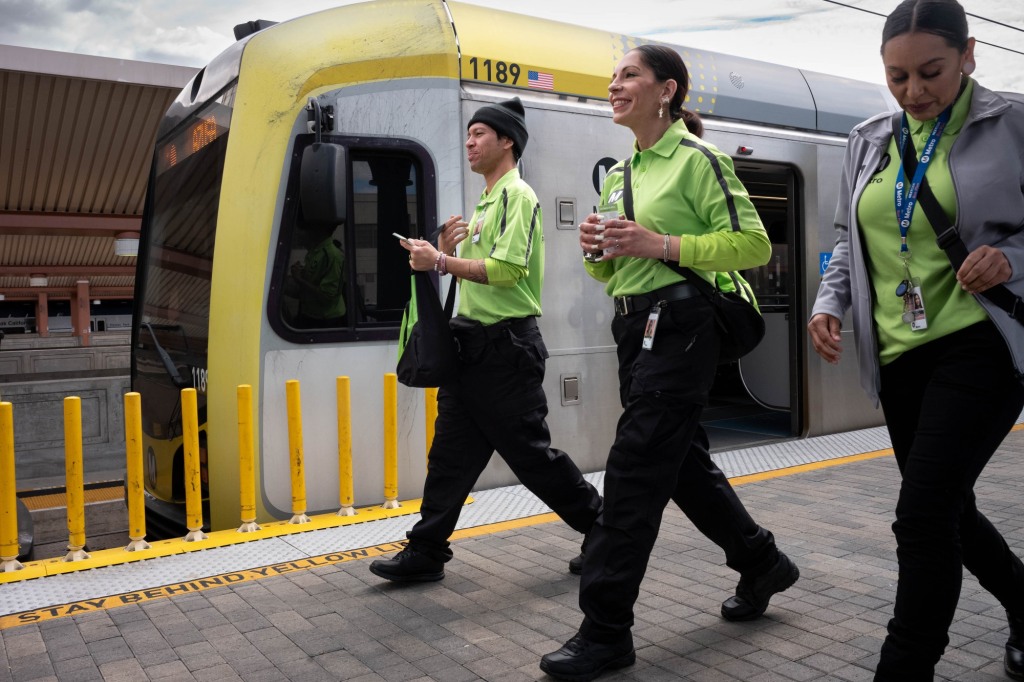With violent crime on LA Metro’s transit system up 24% in 2022, and riders dying from drug overdoses also skyrocketing, the massive transit agency on Monday, March 6 deployed 300 “transit ambassadors” as part of a softer, gentler approach to boost public safety on buses and trains and at stations.
Wearing green polo shirts with the words: “Support. Connect. Report” stamped in capital letters, these young men and women are part travel guide, part transit host, who report crime and drug use to law enforcement, connect the unhoused to Metro’s homeless crisis teams and alert the custodial staff about messes and litter.
They are armed only with iPads and cell phones, no firearms or weapons. Beside reporting crime and grime, they help riders find the nearest bus or train and show them how to pay their fares via Metro’s TAP card system.
One ambassador on Monday was asked why the Little Tokyo/Arts District L (Gold) Line station is still closed and riders must instead take a bus to continue to East Los Angeles or north to Union Station. The Little Tokyo rail station has been closed for almost three years to make room for the new Regional Connector rail, which has been plagued by delays due to testing irregularities.
The ambassador concept, made popular by San Francisco’s Bay Area Rapid Transit (BART), is also a move by the Metro board away from use of law enforcement to bust riders who don’t pay their fares or commit other infractions. The board found that a disproportionate number of Black and Brown riders were being cited.
“We can improve public safety without the unnecessary risk of over-policing,” said Second District Los Angeles County Supervisor and Metro Board member Holly Mitchell in remarks to the ambassadors and VIPs at the kickoff in Union Station’s ticket hall.
CEO Stephanie Wiggins mentioned the overwhelming outcry from riders. About 89% of survey respondents said they wanted more Metro staff on board buses and trains. Ridership…
Read the full article here







